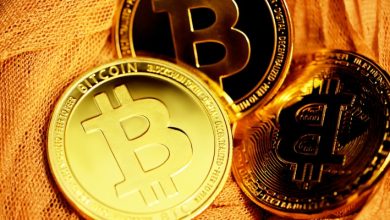Understanding the Difference Between Coins and Tokens

- Introduction to Cryptocurrencies
- Defining Coins and Tokens
- Key Characteristics of Coins
- Key Characteristics of Tokens
- Uses and Applications of Coins
- Uses and Applications of Tokens
Introduction to Cryptocurrencies
Cryptocurrencies have gained significant popularity in recent years as a digital form of currency that operates independently of traditional banking systems. Understanding the difference between coins and tokens is essential for anyone looking to invest in or use these digital assets.
Coins are a type of cryptocurrency that operate on their own blockchain network and have their own unique features and functionalities. Examples of coins include Bitcoin, Ethereum, and Litecoin. These coins are used primarily as a medium of exchange, store of value, or investment.
Tokens, on the other hand, are built on existing blockchain networks, such as Ethereum, and represent assets or utilities. Tokens can be used for a wide range of purposes, including crowdfunding, voting rights, access to digital services, and more. Examples of tokens include ERC-20 tokens and non-fungible tokens (NFTs).
Both coins and tokens can be traded on cryptocurrency exchanges and stored in digital wallets. It is important to research and understand the differences between coins and tokens before investing in or using them to ensure you are making informed decisions in the cryptocurrency market.
Defining Coins and Tokens
When it comes to the world of cryptocurrency, it’s important to understand the difference between coins and tokens. Coins are digital currencies that operate on their own blockchain, such as Bitcoin or Ethereum. They are used as a medium of exchange and can be sent, received, or traded like traditional money. Tokens, on the other hand, are assets that are built on top of an existing blockchain, such as ERC-20 tokens on the Ethereum network.
Coins have their own independent value and can be used for various purposes, including purchasing goods and services, investing, or simply holding as a store of value. Tokens, however, often serve a specific purpose within a decentralized application (dApp) or platform. They can represent assets, voting rights, access to services, or even ownership of physical assets.
Both coins and tokens are valuable in the world of cryptocurrency, but it’s essential to recognize the distinctions between the two. Coins have their own blockchain, while tokens are built on top of an existing one. Understanding these differences can help you navigate the complex world of digital assets more effectively and make informed investment decisions.
Key Characteristics of Coins
The key characteristics of coins can help individuals distinguish between coins and tokens. Coins are physical objects that have several defining features:
- **Durability:** Coins are typically made from materials such as metal or alloy, making them sturdy and long-lasting.
- **Authenticity:** Coins are issued by a government authority and have specific markings or engravings that denote their legitimacy.
- **Universality:** Coins are widely accepted as a form of payment across different regions and countries.
- **Portability:** Coins are small and lightweight, making them easy to carry around for transactions.
- **Intrinsic value:** Coins have inherent value based on the material they are made from, such as gold, silver, or copper.
Understanding these key characteristics can help individuals differentiate between coins and tokens in the world of cryptocurrency and digital assets.
Key Characteristics of Tokens
The key characteristics of tokens differentiate them from coins and give them unique qualities. Tokens are typically created and issued by a company or organization, often as a means of raising funds for a specific project or platform. Unlike coins, tokens do not have their own blockchain but are instead built on an existing blockchain, such as Ethereum. This allows for tokens to be easily created and managed without the need for a separate network.
Another key characteristic of tokens is their functionality within a specific ecosystem. Tokens are usually designed to have a specific use case within a platform or project, such as access to services, voting rights, or rewards. This gives tokens inherent value within their ecosystem, as they are essential for participating in or benefiting from the platform’s offerings.
Additionally, tokens can be easily traded on cryptocurrency exchanges, allowing users to buy, sell, and trade them for other cryptocurrencies or fiat currencies. This liquidity makes tokens a popular choice for investors and traders looking to diversify their portfolios or take advantage of market opportunities.
Overall, the key characteristics of tokens make them a versatile and valuable asset within the cryptocurrency space. By understanding the differences between coins and tokens, investors can make informed decisions about which assets best suit their investment goals and strategies.
Uses and Applications of Coins
Coins have a variety of uses and applications in daily life, making them an essential part of our economy. One of the most common uses of coins is for making purchases. Whether it’s buying a cup of coffee or paying for public transportation, coins are often used for small transactions where using paper money or credit cards may not be practical.
Coins are also commonly used in vending machines, laundromats, and parking meters. These machines are designed to accept coins as a form of payment, providing convenience to users who may not have exact change or prefer to use coins instead of bills.
Furthermore, coins are often used in games and activities that require a form of currency. Whether it’s playing arcade games, participating in carnival games, or collecting coins as a hobby, coins have a versatile range of applications beyond traditional transactions.
In addition to their practical uses, coins also hold historical and cultural significance. Many coins feature designs that reflect the history and heritage of a country, making them valuable not just for their monetary worth but also for their aesthetic and educational value.
Uses and Applications of Tokens
There are various uses and applications of tokens in the cryptocurrency world. Tokens can represent assets, utility, or access to a product or service. They are often used in Initial Coin Offerings (ICOs) as a way for companies to raise funds for their projects. Additionally, tokens can be used for voting on decentralized governance issues, accessing decentralized applications (dApps), and even for in-game purchases within blockchain-based games.
Furthermore, tokens can also be used as a means of creating incentives for users to participate in a network. For example, users may earn tokens for contributing computing power to a decentralized network or for validating transactions. This incentivization model helps to secure the network and ensure its proper functioning.
Another popular use case for tokens is in the creation of tokenized assets. These tokens represent ownership of real-world assets such as real estate, art, or commodities. By tokenizing these assets, they can be traded on blockchain platforms, providing increased liquidity and accessibility to investors.



